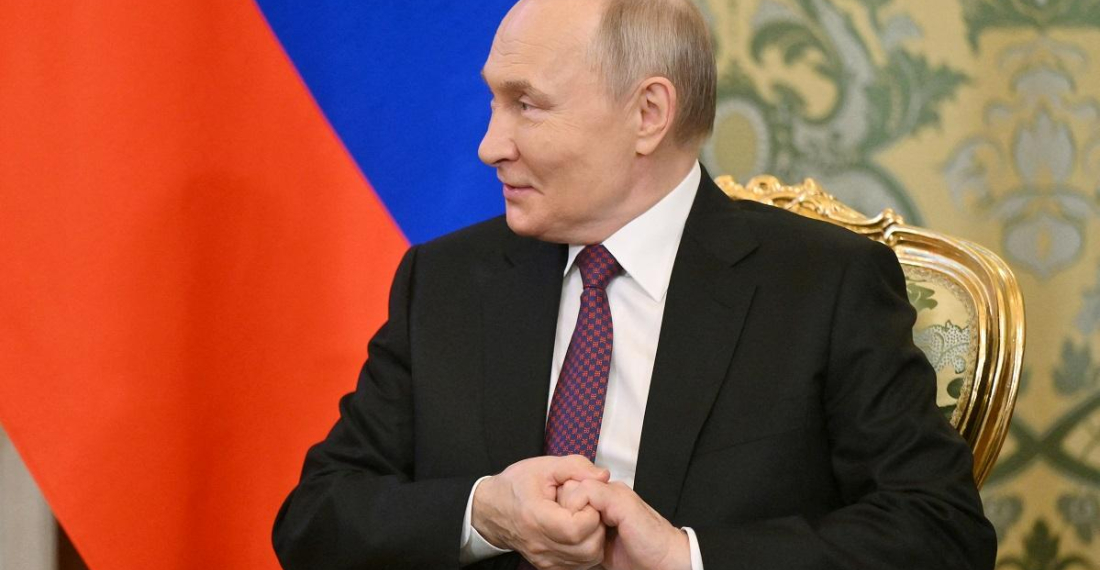Russian President Vladimir Putin has ordered a surprise three-day ceasefire from May 8-10, coinciding with Moscow's World War II Victory Day commemorations, the Kremlin said on Monday. Moscow said it expected Kyiv to issue a similar order, and that it stood ready to respond to any violations of the possible halt in fighting. Putin made a similar order to stop combat over Easter, a truce that both sides accused the other of violating hundreds of times, but did lead to a temporary reduction in fighting.
"The Russian side is declaring a ceasefire during the 80th anniversary of Victory Day, from midnight on May 7-8 to midnight on May 10-11. All combat operations will be suspended during this period," the Kremlin said in a statement. "Russia believes that the Ukrainian side should follow this example. In the event of violations of the truce by the Ukrainian side, the Russian armed forces will give an adequate and effective response," it added. Putin last month rejected a US proposal for a full and unconditional 30-day ceasefire that had been accepted by Ukraine.
Kyiv and its European backers accused Putin of announcing the 30-hour Easter truce as a PR exercise and said he had little desire for peace. Since launching its Ukraine offensive in February 2022, Russia has seized large parts of four Ukrainian regions and claimed them as its own, in addition to Crimea, which it annexed in 2014.
Putin's order of a ceasefire comes at the beginning of what the United States indicated would be a crucial week for the chances of a ceasefire that could determine how long Washington keeps trying to broker a deal. After a meeting with Ukrainian President Volodymyr Zelensky at Pope Francis's funeral on Saturday, Donald Trump questioned whether the Russian leader was serious about peace.
"There was no reason for Putin to be shooting missiles into civilian areas, cities and towns, over the last few days. It makes me think that maybe he doesn't want to stop the war, he's just tapping me along," Trump had said on Truth Social. Russian missiles have killed dozens of civilians over the last month in large-scale strikes on Zelensky's home city of Kryvyi Rig, the northeastern city of Sumy and the capital Kyiv.
Russia had earlier on Monday said it was ready to negotiate directly with Ukraine, but that recognition of its claims over five Ukrainian regions including Crimea were "imperative" to resolving the conflict. Ukraine has denounced the annexations as an illegal land grab and says it will never recognise them, while European officials have warned that accepting Moscow's demands set a dangerous precedent that could lead to future Russian aggression.
Zelensky said last Friday that Ukraine would "not legally recognise any temporarily occupied territories", and has previously called the demilitarisation demand "incomprehensible". Russia and Ukraine have not held direct talks on the fighting since the start of Moscow's offensive in 2022.
Meanwhile, Russia over the weekend announced it had taken full control of its Kursk region with the help of North Korean troops, more than eight months after Kyiv launched a cross-border ground assault. Putin thanked North Korean leader Kim Jong Un on Monday for help with the operation, which has denied Kyiv a key bargaining chip in future talks with Moscow.






